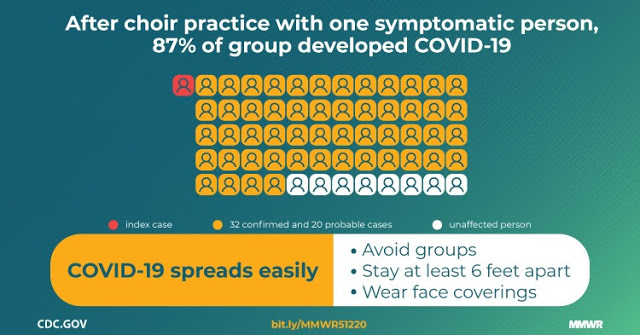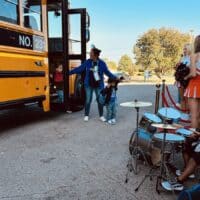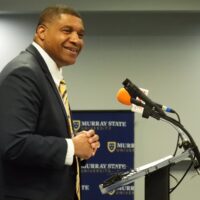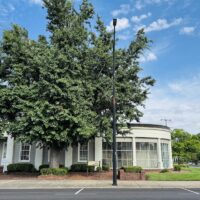
Gov. Andy Beshear stepped up his rhetoric against “misinformation” about the coronavirus and said his gradual reopening of Kentucky’s economy is designed to get schools ready to resume regular sessions, more or less on schedule.
Saying people had asked him about his timing of different stages, he explained at his daily briefing, “It’s all aimed at trying to have kids back in class in the fall.”
Beshear has asked Kentucky schools to consider three options for beginning the next school year: as early as late July; a traditional start in early to mid-August; and a late start, perhaps after Labor Day, depending on the circumstances.
But don’t expect pools to open this summer, he said.
“We’ve got to avoid the temptation for this summer to be like past summers,” he said. “We all want a normal summer but we don’t get a normal summer in the midst of a worldwide health pandemic.”
For the second day in a row, Beshear asked Kentuckians to reject skeptics of the reasons that he says underlie his strategy. After announcing the daily toll of deaths and new cases, he laid out his criticism and rationale:
“This isn’t made up. It’s a lot worse, and a lot more deadly than the flu. Let’s push aside all that misinformation and maybe even intentional misinformation; let’s push aside the naysayers or those who say we should sacrifice certain folks. I don’t believe that; I believe every Kentuckian has value; I believe every Kentuckian counts,” he said.
I’m gonna do everything I can to make sure we don’t unnecessarily lose people going forward. That’s where I stand, so I’m gonna do everything I can to reopen this economy, but I stand with trying to save lives each and every day. That’s my bottom line.”
Asked about a lawsuit by organizers of a May 2 protest at the state Capitol, seeking to block any enforcement of a protest planned for May 23, Beshear indicated they have nothing to fear, except the virus.
“I want them to be able to protest, but I want them to do it safely,” he said. “… My concern is, so many people who are leading these rallies don’t believe this thing is real, otherwise they’d say, ‘Everybody stand six feet apart … wear your masks.'”
Beshear acknowledged that he worries that reopenings will create a false sense of security: “I am a little bit, but I know where we are economically right now, and we’ve got to try to do this, and we’ve got to do it safely.”
As he announced 191 new cases, 71 in Warren County, Beshear said the Bowling Green area has “one of the fastest growing outbreaks in the country,” and he hopes to announce more testing there soon. He noted that the Warren cases included children ages 8, 7, 5, 4 and 2. Twelve new cases were reported in Logan County, which borders Warren.
The adjusted total of Kentucky cases is 6,853, 2,546 of whom have recovered, Beshear said. He reported 10 additional deaths, for a total of 321.
In other COVID-19 news Tuesday:
Beshear announced that a 16-year-old is suffering from the inflammatory illness that the virus is suspected of causing in some children, but is not in intensive care, unlike a 10-year-old mentioned Monday. Health Commissioner Steven Stack said that patient is “showing signs of improvement.” Norton Children’s Hospital in Louisville is evaluating two children for possible coronavirus-related inflammatory symptoms, Deborah Yetter reports for the Courier Journal.
Stack noted recent reports that suggest the virus will not slack off with warm weather, as many similar viruses do.
Long-term-care facilities reported 12 new cases among residents and six among employees, for respective totals of 901 and 371; and four more deaths, for a total of 185, including two employees. “It at least feels like we are getting better control in these facilities,” he said. “To dispel some other misinformation, we’ve always put a priority on these facilities.” He added, “I feel our response in these facilities is gonna get better and better.”
Beshear announced an additional Walmart testing site, in Bardstown, which he said was sought by Mayor Dick Heaton. In response to a question, Beshear said no one should be charged for a test, but some people may have been charged for a doctor visit as part of test authorization.
Replying to a question about a pharmacy not honoring a driver’s license that had apparently expired, Beshear said he would remind pharmacies that he had extended such licenses.
As churches in Kentucky start to re-open, Beshear has asked them to not sing because it will increase the risk of spreading the coronavirus. Today, the Centers for Disease Control and Prevention put out a study to support that guidance; it found that following a 2½-hour choir practice attended by 61 people, where one was known to be symptomatic, 32 confirmed and 20 probable secondary COVID-19 cases occurred, three of them were hospitalized, and two died. The report says, “Transmission was likely facilitated by close proximity (within 6 feet) during practice and augmented by the act of singing.”
Kentucky is ranked as the sixth-most vulnerable state to coronavirus, according to a WalletHub survey that looked at 28 metrics in three categories, including medical, housing and financial vulnerability. The study ranked Kentucky second for medical vulnerability, 26th for housing vulnerability, and 16th for financial vulnerability.
At least two of 300 inmates tested at the Jefferson County Jail were found to have the virus, marking the first confirmed cases in the Louisville jail, Darcy Costello reports for the Courier Journal. A spokesman for FOP Lodge 77 told her that more employees have tested positive than inmates: about 100 staffers tested, about 22 were positive. Tests are still in process.
Four people who attended a May 2 protest in front of the Capitol have filed a lawsuit against the governor and other state officials, accusing them of violating the First Amendment by restricting protests and threatening punishment, Morgan Eads reports for the Lexington Herald-Leader.
(Kentucky Health News is an independent news service of the Institute for Rural Journalism and Community Issues, based in the School of Journalism and Media at the University of Kentucky, with support from the Foundation for a Healthy Kentucky.)





